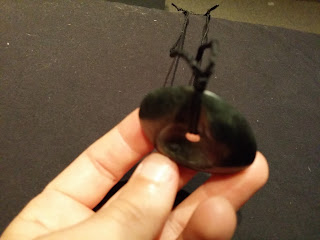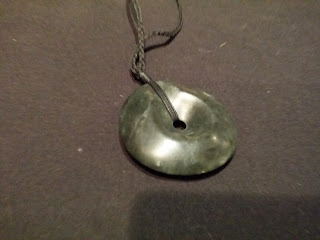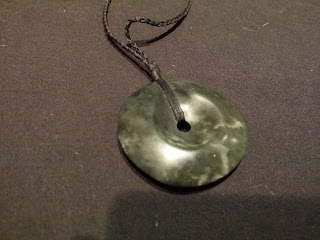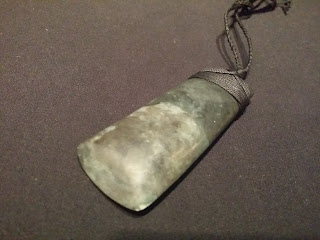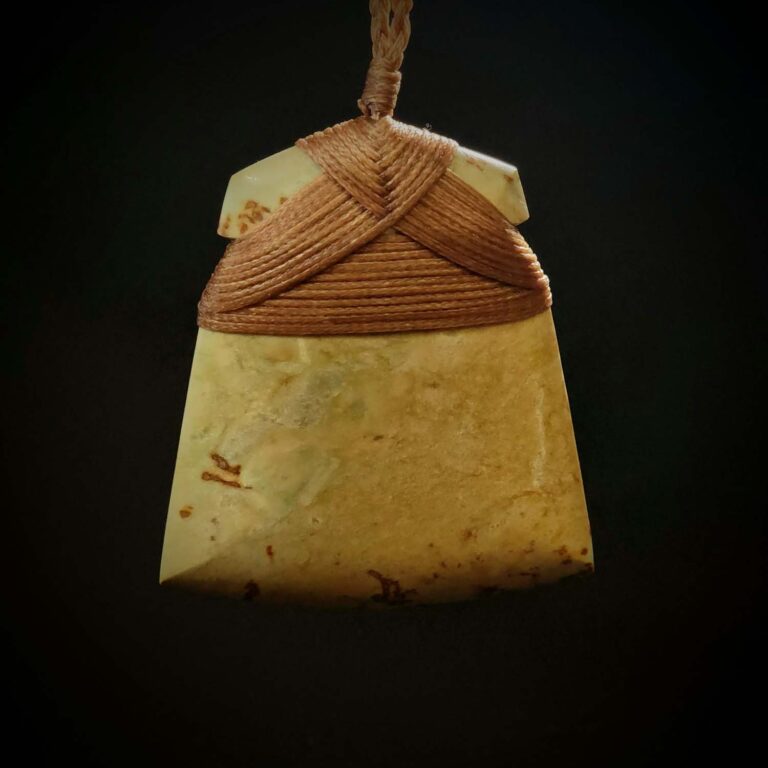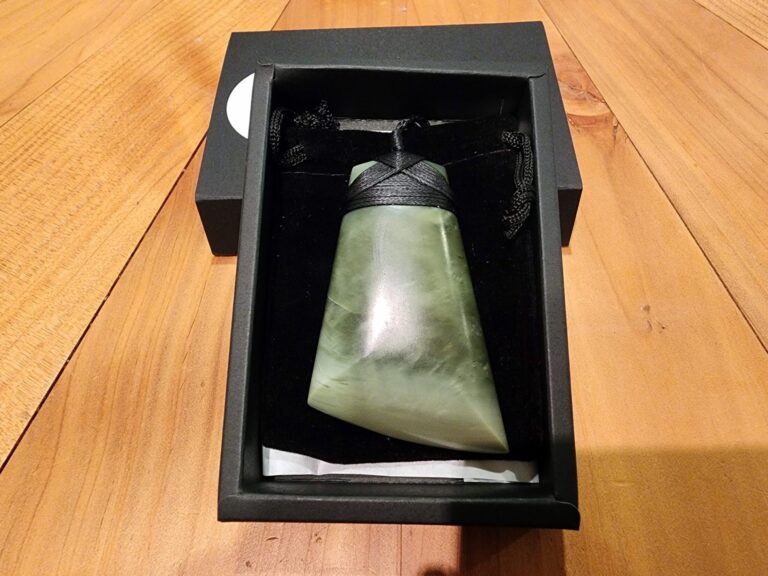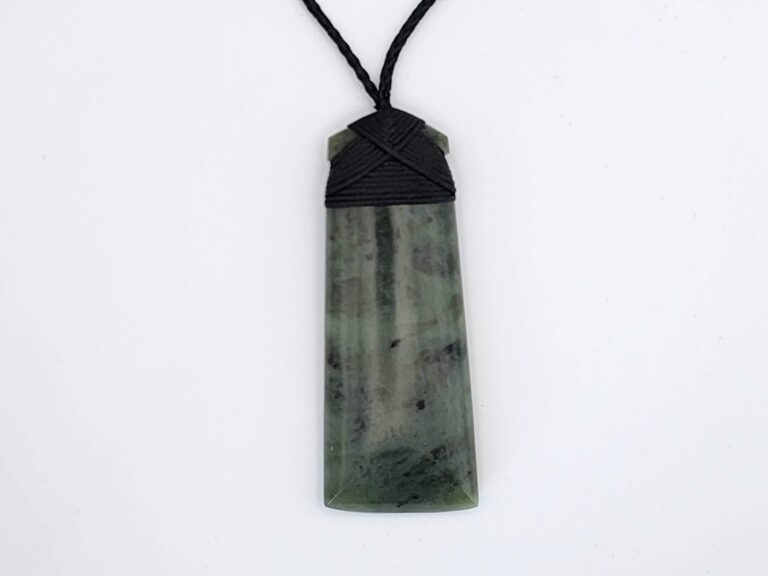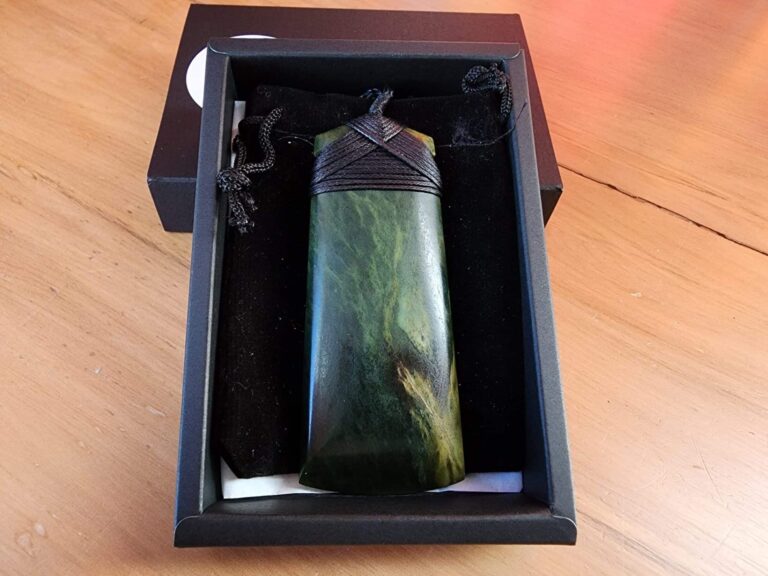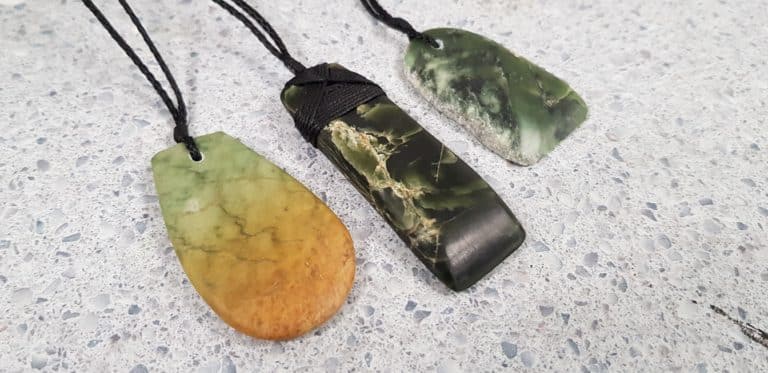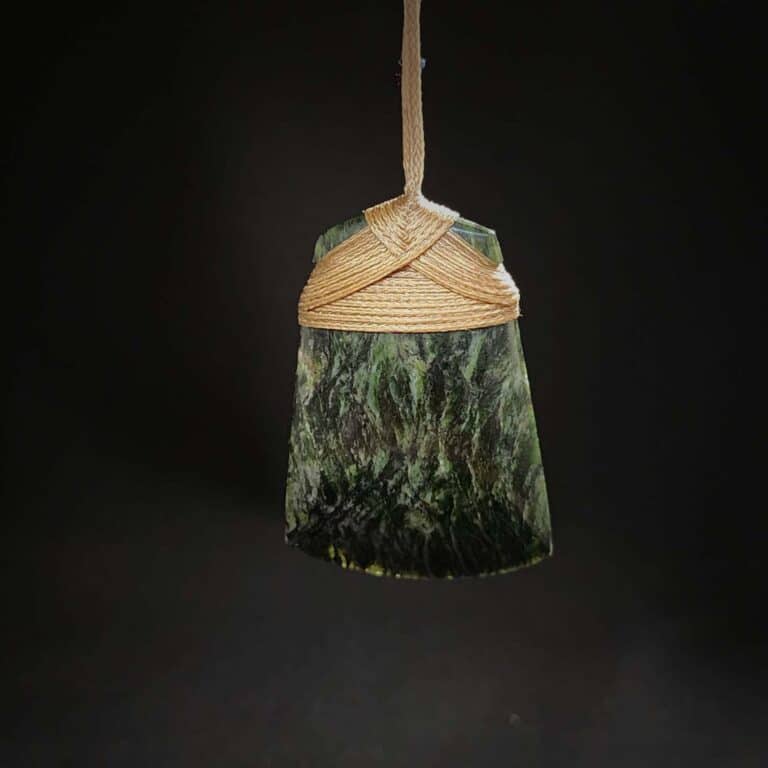Porohita and Toki Wedding Set
These were made for a set of pendants for a wedding of some very good friends of mine.
Having two pounamu that are carved from the same stone is a very special thing for a couple.
Jade goes through some pretty serious stuff to become what it is today. It is formed when two tectonic plates collide and the one that slips lower takes the necessary ‘ingredients’ to the depths where the pressure and temperature will form the Jade.
I have said this in a previous post and it applies here too. These two pieces of stone have been side by side for a very, very long time. Since their formation into this precious and durable stone they have been together. It is appropriate for a couple to wear matching pieces like this to feel connection with each other as the wairua (spirit) of these two pendants will always be connected.
I really like this piece, it took a long time. Making a circle carving like this free hand is way more time consuming than I expected.
The closed circle with a hole in between represents the never ending circle of life and nature.
I found this on another website and it describes the significance of this shape well.
Both the spiral and the circle are also described as a metaphor for“a never-ending journey of discovery and re-discovery. The journey itself, with its indigenous perspectives and sense of orientation, is the most significant act of cultural recuperation. It reflects the importance of being on the move in the present while realizing that the path of tradition is a two-way track, it points, simultaneously, in the present towards the past and the future.” Source: The Circle & the Spiral: A Study of Australian Aboriginal and New Zealand Maori Literature. Sourced from http://www.tuarangi.com/meaning-of-maori-symbols-and-designs/
The toki is a piece I have posted about before and the porowhita (circle) was made after to match it. You can see the post and explaination of it here.
This is the slab that these pieces were carved from. The toki is the piece fourth from the right and the porowhita is the first piece on the left.




